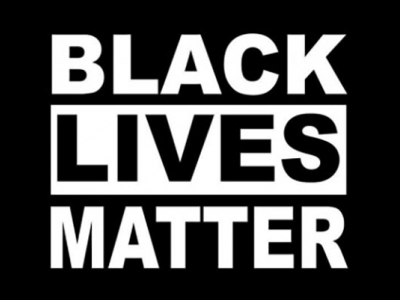Art, Art History & Visual Studies Antiracism Initiative
Art, Art History & Visual Studies Antiracism Initiative
Guiding Statement: Structural racism, the product of centering whiteness, is present in all aspects of the academy, and as members of this intellectual and professional community we have a responsibility to take antiracist actions to dismantle it. One key area where we can enact change is in our teaching. Today in this Forum we will move towards antiracist pedagogy in our department.
| Spring 2022 Art History Speaker Series | |
|---|---|
|
March 15, 2022 Natilee Harren, Assoc. Professor of Art History, University of Houston School of Art |
|
|
March 3, 2022 Anna Kesson, Asst. Professor of Black Diasporic Art, Princeton University |
|
|
January 27, 2022 Tiffany Barber, Asst. Professor of Africana Studies and Art History, University of Delaware |
|
| Antiracism Pedagogy Forums |
|---|
|
The AAHVS Antiracist Pedagogy Forum met monthly to hear presentations on and to discuss specific themes, for a total of 8-9 meetings. These themes were proposed by graduate students, faculty, and teaching staff in the department: • to share antiracist methodologies and strategies already in use in instructors’ fields • to identify opportunities to incorporate antiracist pedagogies into our teaching practices so that we ensure equitable, safe learning opportunities for all students • to identify areas in the department's curricula in which antiracist pedagogies and approaches to disciplinary content can be implemented or augmented. • to connect the 3Cs: content, context, and community |
| 2021-22 Academic Year |
|---|
|
March 22, 2022 February 23, 2022 December 1, 2021 |
|
November 16, 2021 |
| November 2, 2021 Hacking into History: Discovering Racial Covenants in Durham County Property Deeds Alexandra Chassanoff, Assistant Professor of Library and Information Sciences at North Carolina Central University. |
|
September 29, 2021 |
| 2020-21 Academic Year |
|---|
| April 20, 2021 Duke Libraries’ Diversifying Scholarship in the Curriculum Team Presentation |
|
March 30, 2021 |
|
March 2, 2021 February 15, 2021 |
June 2020
Department Issues Statement in Support of Black Lives
Statement in Support of Black Lives
The faculty, students, and staff of the Department of Art, Art History, & Visual Studies state unequivocally that Black Lives Matter. We stand in solidarity with the Movement for Black Lives and connected international campaigns in condemning antiblack racism, police brutality, and the violence and loss inflicted on the Black community through the murders of Ahmaud Arbery, Breonna Taylor, George Floyd, Tony McDade, Dominique Rem’mie Fells, Riah Milton, Rayshard Brooks, and countless others.
As a community we recognize the responsibility that our department has to cultivate equity within Duke as an institution and the larger Durham community as a whole. Effective immediately, our department will examine its commitment to anti-racism, social justice, and equity by taking concrete steps to refocus our curriculum, openly discuss our departmental and disciplinary culture, and solidify our institutional commitments to diversity and inclusion. Above all, we are committed to taking collective and individual action toward dismantling systemic racism in our department, academia, and the arts.
We will
• transform our curriculum to address equality and social justice directly, particularly highlighting anti-racist methodologies
• alter our staff and faculty hiring and student admissions priorities to accelerate diversity in our department
• promote dialogue through internally and externally focused initiatives on Black Lives Matter, dismantling white supremacy, and abolishing racism
• augment mentoring for graduate students and faculty of color
• develop networks of support for faculty, students, and staff of color, including mechanisms for reporting that extend beyond individual practice and lead to departmental dialogue and action
• create a departmental task force composed of faculty, staff, and students to fulfill these goals. The task force will develop clearly defined action items and timetables to be shared publicly and reviewed every semester by the department’s executive committee for accountability.
As we move towards positive growth, we acknowledge, as individuals and as a department, that we have blind spots in our current structures that are in need of correction. In the coming weeks, we will announce the departmental task force, which will publicize its first timeline for action on August 17, 2020.












